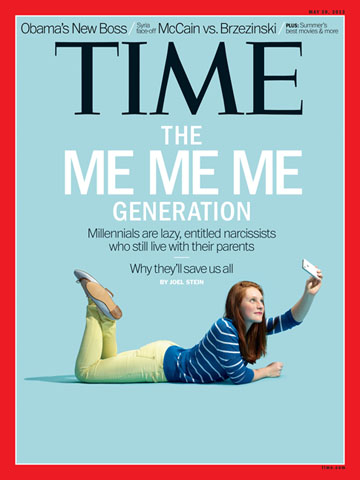
(7 of 8)
Companies are starting to adjust not just to millennials' habits but also to their atmospheric expectations. Nearly a quarter of DreamWorks' 2,200 employees are under 30, and the studio has a 96% retention rate. Dan Satterthwaite, who runs the studio's human-relations department and has been in the field for about 23 years, says Maslow's hierarchy of needs makes it clear that a company can't just provide money anymore but also has to deliver self-actualization. During work hours at DreamWorks, you can take classes in photography, sculpting, painting, cinematography and karate. When one employee explained that jujitsu is totally different from karate, Satterthwaite was shocked at his boldness, then added a jujitsu class.
Millennials are able to use their leverage to negotiate much better contracts with the traditional institutions they do still join. Although the armed forces had to lower the physical standards for recruits and make boot camp less intensive, Gary Stiteler, who has been an Army recruiter for about 15 years, is otherwise more impressed with millennials than any other group he's worked with. "The generation that we enlisted when I first started recruiting was sort of do, do, do. This generation is think, think about it before you do it," he says. "This generation is three to four steps ahead. They're coming in saying, 'I want to do this, then when I'm done with this, I want to do this.'"
Here's something even all the psychologists who fret over their narcissism studies agree about: millennials are nice. They have none of that David Letterman irony and Gen X ennui. "The positivism has surprised me. The Internet was always 50-50 positive and negative. And now it's 90-10," says Shane Smith, the 43-year-old CEO of Vice, which adjusted from being a Gen X company in print to a millennial company once it started posting videos online, which are viewed by a much younger audience. Millennials are more accepting of differences, not just among gays, women and minorities but in everyone. "There are many, many subcultures, and you can dip into them and search around. I prefer that to you're either supermainstream or a riot grrrl," says Tavi Gevinson, a 17-year-old who runs Rookie, an online fashion magazine, from her bedroom when she's not at school. It's hard, in other words, to join the counterculture when there's no culture. "There's not this us-vs.-them thing now. Maybe that's why millennials don't rebel," she says.
There may even be the beginning of a reaction against all the constant self-promotion. Evan Spiegel, 22, co-founder of Snapchat, an app that allows people to send photos, video and text that are permanently erased after 10 seconds or less, argues that it's become too exhausting for millennials to front a perfect life on social media. "We're trying to create a place where you can be in sweatpants, sitting eating cereal on a Friday night, and that's O.K.," he says.
